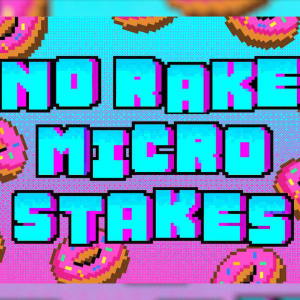Outplaying your opponents is an obvious goal for poker players. Simply make better decisions than them and the money will start to roll in.
If only it were that simple. New players arrive on the scene making wild bluffs with no logic behind them and overvaluing many of their holdings. Slowly, over time, they learn a basic strategy covering preflop and post flop and start to make headway.
At this point the stagnation really begins to set in. With a strategy in their head they start to play like robots and become scared to leverage any kind of creativity, fearful of deviating too far from the ABC play.
Probe Betting, Float Betting, and Delayed Continuation Bets
Let’s start with the definitions.Probe bet: A probe bet always takes place when you are out of position. It happens when your opponent checks behind on the flop or turn and you lead out on the next street.
Float bet: A float bet always takes place when you are in position. It happens on the flop, turn, or river when your opponent checks to you.
These two spots are responsible for both raking in extra profit and losing enough win rate to make you an overall loser. They must be thought about very carefully in order not to be exploitable.
Delayed continuation bets: A delayed continuation bet is when you don’t bet the flop but choose to bet the turn instead. This concept allows you to disguise your holding making turn and river plays more profitable.
Tips
One spot where many players go wrong is automatically betting when they are checked to. While with nothing but a trash holding this might well be right, but what if you are holding a value hand that is only borderline worth two or three streets?It is important to understand that while betting these hands might be profitable it isn’t necessarily going to make you more money than checking.
How vulnerable your hand is here plays an important role. With a small pair making probe or float bets for protection is a good idea, not letting your opponent realise their equity for free.
With a decent second pair, or top pair no kicker, it is always worth considering letting your opponent try to bluff you. They can also pick up a worse pair allowing you to value bet the river successfully when otherwise they would have folded.
Good strategy for delayed continuation betting follows the same theme. If your hand is not vulnerable then don’t get over-excited about trying to prise the pot away from your opponent right away.
Think about your hand range as a whole when deciding on your strategy. If you bet whenever your opponent plays passively you will be highly exploitable and it will soon become obvious and make you easy to play against.
Checking weak draws - even eight-card flush and straight draws - is absolutely fine. This has the advantage of letting good players know that just because you didn’t take the aggressive option when a draw was available you can still have it.
Auto Profit Opportunities
There are certain situations where you can take a single action every time and make automatic profit. This includes betting on specific flop textures because the population as a whole will fold frequently enough.Another great spot to exploit weak players is to continuation bet 100% of your range when isolating limpers. These players will almost always call your raise preflop but their range is so weak that they are folding a ton.
Don’t forget that a half pot bet only needs to be successful 33% of the time to make a profit.
The latest generation of database software allows us to perform population analysis that will confirm exactly what these spots are for your particular games. For live players, there is nothing else to do but pay close attention and discuss with your fellow players.
There is also the flip side of this. Many players who take bluff lines think that they are making easy money but the reality is that you just won’t get enough folds given the population.
This is driven by the fact that we have all been hammered to play aggressively when we pick up equity, such as turning a flush or straight draw.


